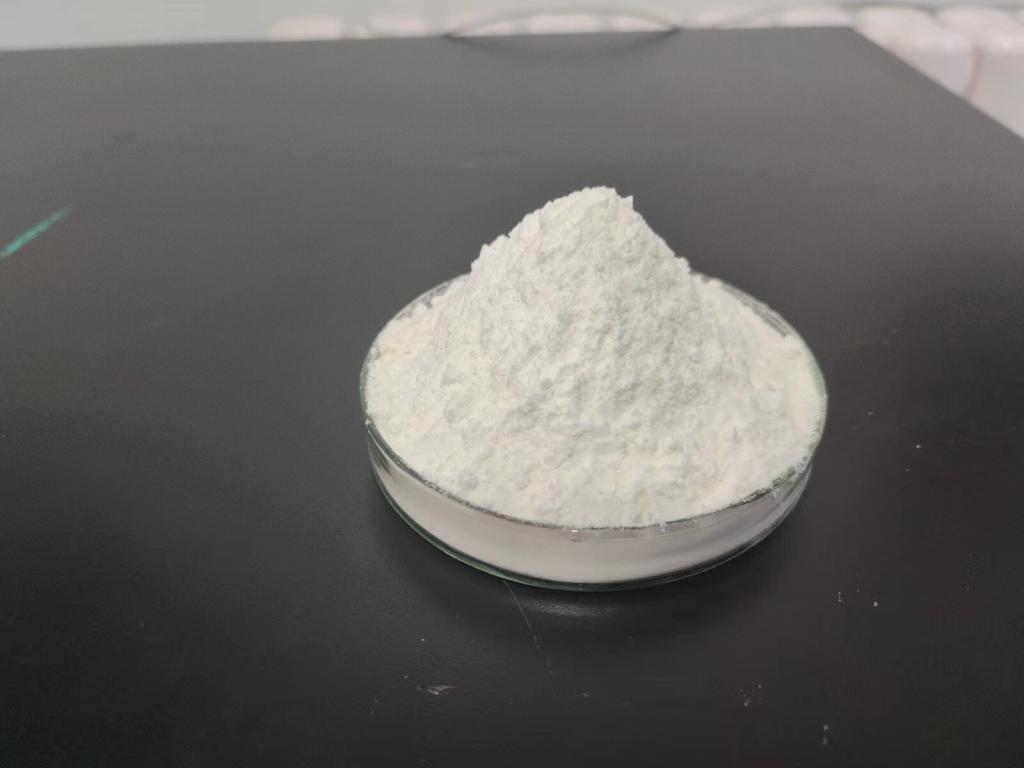Tel:+8618231198596

News
 CONTACT
CONTACT
 CONTACT
CONTACT
- Linkman:Linda Yao
- Tel: +8618231198596
- Email:linda.yao@dcpharma.cn
- Linkman:CHARLES.WANG
- Department:Overseas
- Tel: 0086 0311-85537378 0086 0311-85539701
News
ε-Polylysine Hydrochloride: Potential Applications in the Treatment.
TIME:2024-07-10
Mechanisms of Action in Inflammation
The therapeutic potential of ε-PL in chronic inflammatory diseases stems from its multifaceted mechanisms of action:
Immunomodulation: ε-PL exhibits immunomodulatory effects by influencing immune cell function and cytokine production. It has been shown to regulate the balance between pro-inflammatory and anti-inflammatory responses, thereby attenuating excessive inflammation characteristic of chronic inflammatory diseases.
Antimicrobial Activity: Although primarily recognized for its antimicrobial properties, ε-PL's ability to modulate the microbiota may indirectly impact immune responses and inflammation, particularly in conditions where dysbiosis plays a role.
Anti-oxidative Stress: ε-PL has been reported to possess antioxidant properties, which can help mitigate oxidative stress-induced tissue damage associated with chronic inflammation.
Experimental Evidence and Preclinical Studies
1. Rheumatoid Arthritis (RA)
In animal models of RA, ε-PL has shown promising results in reducing joint inflammation and cartilage destruction. Studies attribute these effects to its ability to suppress inflammatory cytokines such as tumor necrosis factor-alpha (TNF-α) and interleukin-6 (IL-6), while promoting anti-inflammatory cytokines like interleukin-10 (IL-10).
2. Inflammatory Bowel Disease (IBD)
Preclinical studies suggest that ε-PL may benefit patients with IBD by reducing intestinal inflammation and promoting mucosal healing. Its immunomodulatory effects on intestinal immune cells and its ability to restore intestinal barrier function are of particular interest in IBD management.
3. Psoriasis and Dermatitis
Topical application of ε-PL has demonstrated efficacy in animal models of psoriasis and dermatitis by alleviating skin inflammation and improving skin barrier function. These findings highlight its potential as a novel therapeutic approach for inflammatory skin conditions.
4. Asthma
In asthma models, ε-PL has shown anti-inflammatory effects by modulating airway inflammation and hyperresponsiveness. These effects are mediated through its ability to regulate immune cell recruitment and cytokine production within the lungs.
Clinical Potential and Challenges
While preclinical studies have provided promising results, translating ε-PL into clinical applications for chronic inflammatory diseases poses several challenges:
Safety and Toxicity: Comprehensive safety assessments, including long-term toxicity studies, are essential to establish the safety profile of ε-PL for human use.
Formulation and Delivery: Developing suitable formulations and delivery systems that ensure effective delivery of ε-PL to target tissues while maintaining stability and bioavailability is critical.
Regulatory Approval: Obtaining regulatory approval for ε-PL as a therapeutic agent requires rigorous clinical trials demonstrating safety, efficacy, and reproducibility of results.
Future Directions and Innovations
Future research directions for ε-PL in chronic inflammatory diseases should focus on:
Clinical Trials: Conducting well-designed clinical trials to evaluate ε-PL's efficacy in human subjects with various chronic inflammatory conditions.
Mechanistic Studies: Elucidating the precise mechanisms by which ε-PL modulates immune responses and inflammation to optimize its therapeutic potential.
Combination Therapies: Exploring synergistic effects of ε-PL with existing therapies to enhance treatment outcomes and reduce reliance on high-dose immunosuppressive drugs.
Conclusion
ε-Polylysine hydrochloride represents a promising therapeutic agent for the management of chronic inflammatory diseases, leveraging its immunomodulatory properties and potential to attenuate inflammation and tissue damage. While preclinical studies have demonstrated encouraging results across different disease models, further research is needed to validate its efficacy and safety in clinical settings. With ongoing advancements in biomedical research and innovative therapeutic strategies, ε-PL holds the potential to offer novel treatment options that address the complexities of chronic inflammatory diseases more effectively.
- Tel:+8618231198596
- Whatsapp:18231198596
- Chat With Skype







